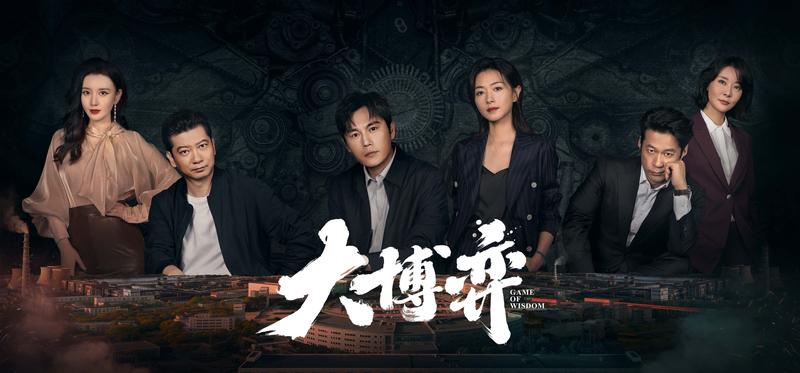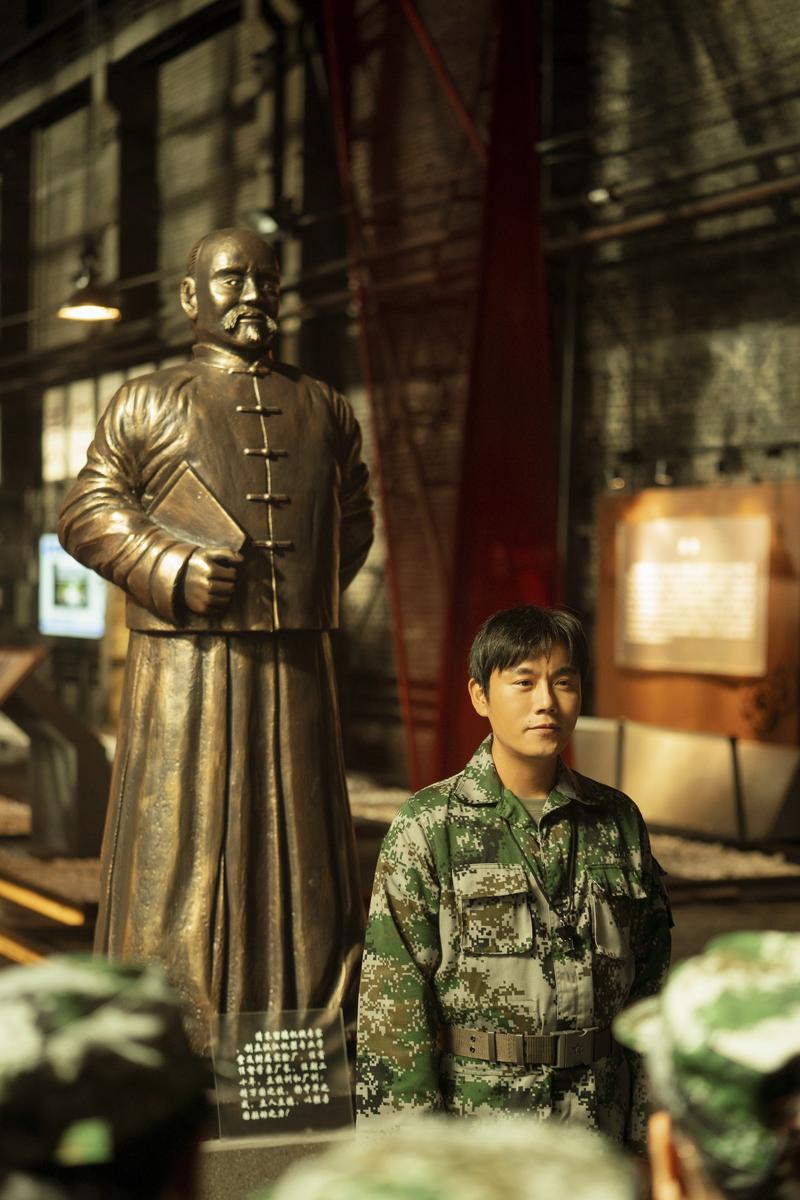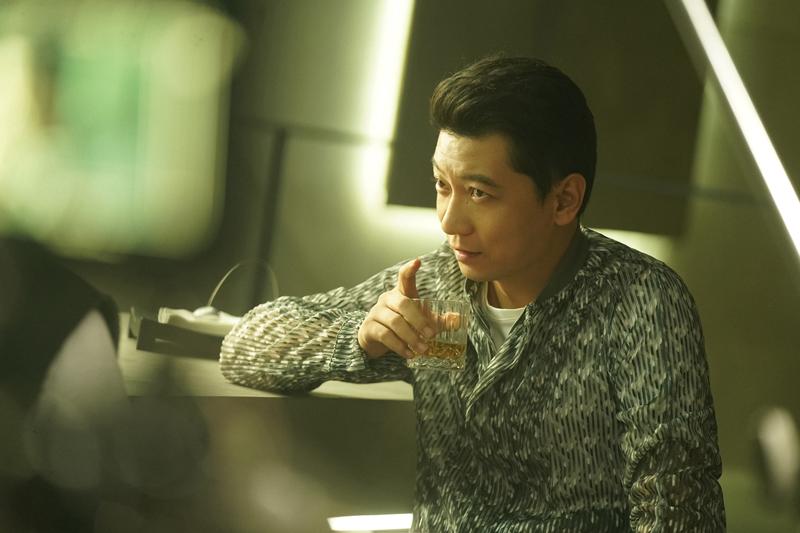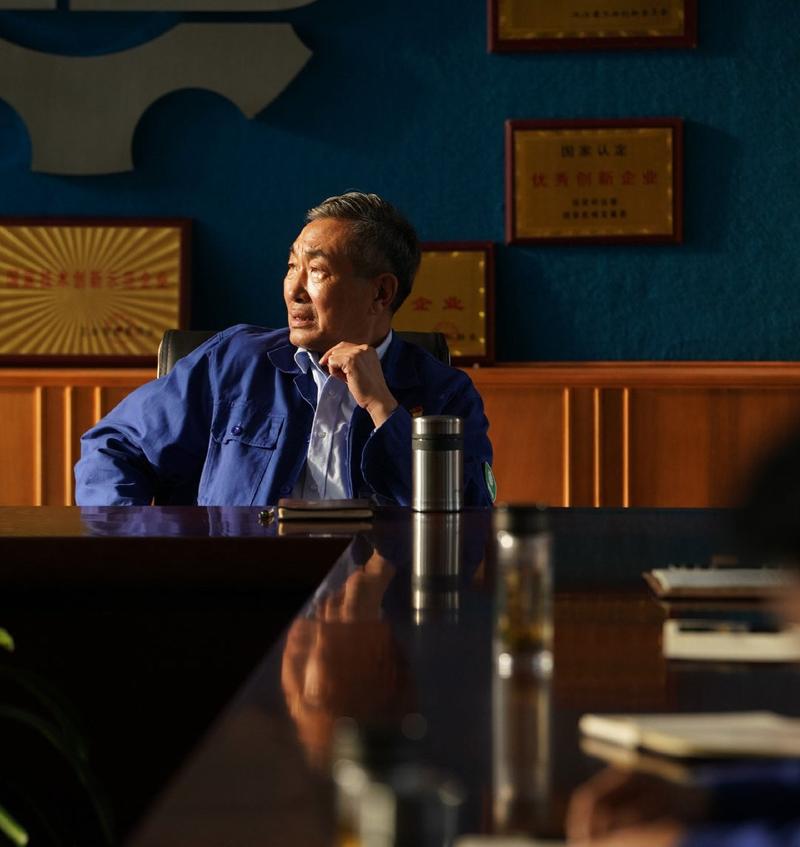New production follows the fortunes and failures of fictional manufacturers, Xu Fan reports.
 Poster of the TV series Game of Wisdom. The epic production highlights the meteoric rise of China's manufacturing industry in the past three decades. (PHOTO PROVIDED TO CHINA DAILY)
Poster of the TV series Game of Wisdom. The epic production highlights the meteoric rise of China's manufacturing industry in the past three decades. (PHOTO PROVIDED TO CHINA DAILY)
When China launched a reform to unwind the non-tradable shares of domestic enterprises in 2005, Zhou Meisen — an award-winning writer known for his insights of Chinese society — paid particular attention to a famous manufacturing enterprise. It had managed to get listed in Hong Kong and the mainland by acquiring an automobile manufacturer.
That drew him to delve into observing the changing capital market. Later, the veteran novelist heard an interesting story from the head of a renowned heavy equipment manufacturing enterprise.
When the enterprise was struggling, the executive traveled to Jakarta to see if he could sell some diesel engines in Indonesia. However, he occasionally discovered that many locals were suffering from a severe rodent infestation. This inspired him to shift to sell Chinese rat poison. The new business earned him a fortune, exemplified by the profit from one pack of rodenticide even surpassing that from an engine.
Although the entrepreneur recalled the story with a degree of nonchalance, Zhou felt quite impressed, evoking his interest to follow the businessman to conduct a series of interviews and visit his plant in the following years.
With more research on China's leading heavy equipment manufacturers, including Sany Group and Zoomlion Heavy Industry Science &Technology, Zhou spent a total of 12 years to write Game of Wisdom, an epic tale chronicling how a century-old manufacturing enterprise walks out of a bankruptcy crisis to turn into an internationally recognized behemoth, and get listed in Hong Kong.
 Qin Hao plays the protagonist, an ambitious and capable entrepreneur. (PHOTO PROVIDED TO CHINA DAILY)
Qin Hao plays the protagonist, an ambitious and capable entrepreneur. (PHOTO PROVIDED TO CHINA DAILY)
Recently, Game of Wisdom, a 40-episode TV series adapted from Zhou's novel, with himself as the scriptwriter, has been broadcast on Shanghai's Dragon TV and Zhejiang Television, as well as the streaming site Tencent Video since Nov 5.
Opening in an unnamed Southeast Asian country, actor Qin Hao-starring Sun Heping, an international trade manager of a State-owned machinery plant, receives an urgent call asking him to come back to take over the plant, which is facing bankruptcy due to poor management. The ambitious and capable entrepreneur masters a series of difficulties and crises to lead the plant, with a history of around 100 years, to a glorious resurgence.
Aside from Sun, the drama depicts another two entrepreneurs who have a nose for business, respectively Tian Yu acting as Liu Biding, a flamboyant yet decisive private company founder, and Tan Kai playing Yang Liu, a sophisticated chairman who's heading a giant State-owned enterprise.
Putting flesh on the bone of the three characters, all graduates from a prestigious university's mechanical engineering department, Zhou interweaves the complexity of humanity, varying from the desire for wealth to the persistence of morality, with a historical backdrop of the rise of China's manufacturing industry.
"I have spent a lot of time researching many Chinese enterprises and entrepreneurs," says Zhou. He adds he has discovered that a lot of outstanding entrepreneurs have led their companies to emerge from the plights of peril and create miracles, giving him the inspiration to create the protagonist Sun.
"Sun is my favorite character. For all those who have strived for a great vision, they are heroes even if they end with a failure," he adds.
 Tian Yu stars as a former schoolmate of Qin's character and business partner. (PHOTO PROVIDED TO CHINA DAILY)
Tian Yu stars as a former schoolmate of Qin's character and business partner. (PHOTO PROVIDED TO CHINA DAILY)
As a prolific writer best known for the smash hit In the Name of the People, about a prosecutor's efforts to unearth corruption, Zhou says he fancies penning realistically themed novels featuring large issues and complicated relationships among the characters.
Game of Wisdom has a lot of funny and comic moments, setting the serious-themed tale with a lighthearted tune and making it more friendly to the young audience. One example is the protagonist still discussing his business while hiding under a vehicle to escape a shootout on a street in the Southeast Asian country.
For director Han Xiaojun, the impetus to join the project was Zhou's script, which he describes as an in-depth depiction of Chinese people and their distinctive striving spirit.
A native of Northwest China's Shaanxi province, Han grew up with a strong interest in machines, as four of his relatives — two uncles and aunts — all worked in local factories, giving him a familiarity with old plants.
As the TV series spans more than three decades, the director led a team to investigate dozens of sites to select the best shooting locations.
When they went to an abandoned manufacturing plant initially for several episodes set in the early 1990s, Han says the thick layers of dust and old oil stains remaining on some facilities reminded him of his childhood.
 Du Yuan plays the role of a dedicated director of a century-old manufacturing plant, the predecessor of Qin's character. (PHOTO PROVIDED TO CHINA DAILY)
Du Yuan plays the role of a dedicated director of a century-old manufacturing plant, the predecessor of Qin's character. (PHOTO PROVIDED TO CHINA DAILY)
Interestingly, when they took a 10-minute-plus ride to the new plant, he was amazed to see how China's heavy industry had rapidly progressed after seeing the highly modernized workshops.
"The workshops are very clean. Merely in more than one minute, we could see a set of parts turn into a truck after getting through an assembly line. It makes you feel very proud about China's leap in just a few decades," Han says.
After preparing the project for three months in Beijing and Qingdao, Shandong province, the shooting took place from July to November, with its cast reaching more than 300 members for the largest-scale scene in a single day.
For the veteran who has worked in the film and TV industry for more than 30 years, Han says the elements that lay the foundation for a quality work are still characters and the story itself. So, he has encouraged the stars to understand the characters in their own way and thus perform at their best.
"When they got relaxed and felt comfortable with their roles, the shooting could go more smoothly to follow their own pace," he explains.
Noting that the domestic manufacturing industry's development is an epitome of China's rise thanks to the four-decade reform and opening-up, the director says they wish the TV series could find its own way to record this splendid chapter of modern history, taking it as a tribute to those dedicated to raise "made-in-China" to a new height.
Contact the writer at xufan@chinadaily.com.cn


